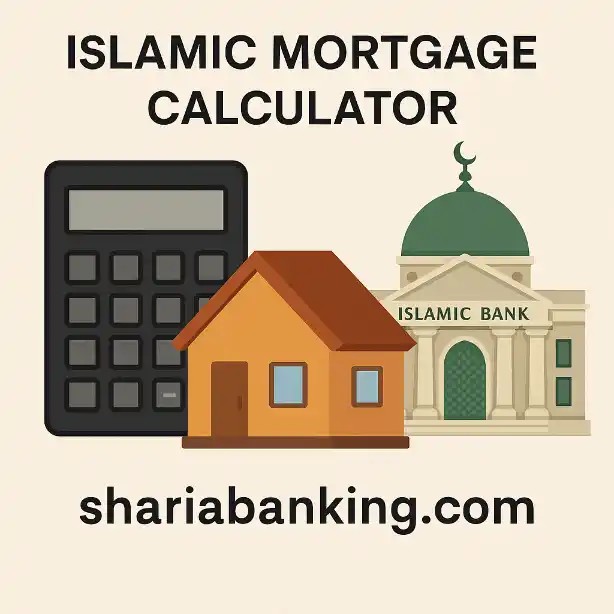
What is an Islamic mortgage calculator for monthly repayment ?
An Islamic mortgage calculator for monthly repayment is a financial tool designed to help individuals estimate how much they will pay each month when financing a property through a Shariah-compliant structure; this tool adapts to Islamic finance contracts where profits, rents, or partnership returns replace interest.
The Islamic mortgage calculator calculates monthly installments by dividing this total selling price (property cost + bank’s profit margin) for Murabaha over the financing term; since the profit margin is fixed upfront, the monthly repayments remain constant, providing certainty and stability to the customer throughout the repayment period.
Why do Muslims need an Islamic mortgage simulator ?
Muslims need an Islamic mortgage calculator or simulator because conventional mortgage calculators are based on interest (riba), which is prohibited in Islamic finance.
A Shariah-compliant calculator for an Islamic mortgage, helps Muslims understand their financial commitments without dealing with interest-based structures; it reflects profit rates, rental values, or partnership shares instead of interest charges, ensuring that repayment estimates are aligned with Islamic principles and free from prohibited elements.
How does this calculator for halal home loan work ?
Apply the Shariah Contract Formula
- Murabaha (cost-plus):
- Bank’s cost + pre-agreed profit = Total selling price.
- Calculator divides this price into equal monthly installments.
- Ijara (lease-to-own):
- Calculator separates payment into rent (based on bank’s ownership) + acquisition contribution.
- Each month, ownership shifts a little more to the customer, reducing the rent.
- Musharaka Mutanaqisah (diminishing partnership):
- Calculator computes rent on the bank’s share + buy-out portion of that share.
- Rent decreases as ownership increases, until customer owns 100%.
4. Show the Monthly Repayment Breakdown
- The calculator displays:
- Monthly repayment amount
Islamic Mortgage Calculator